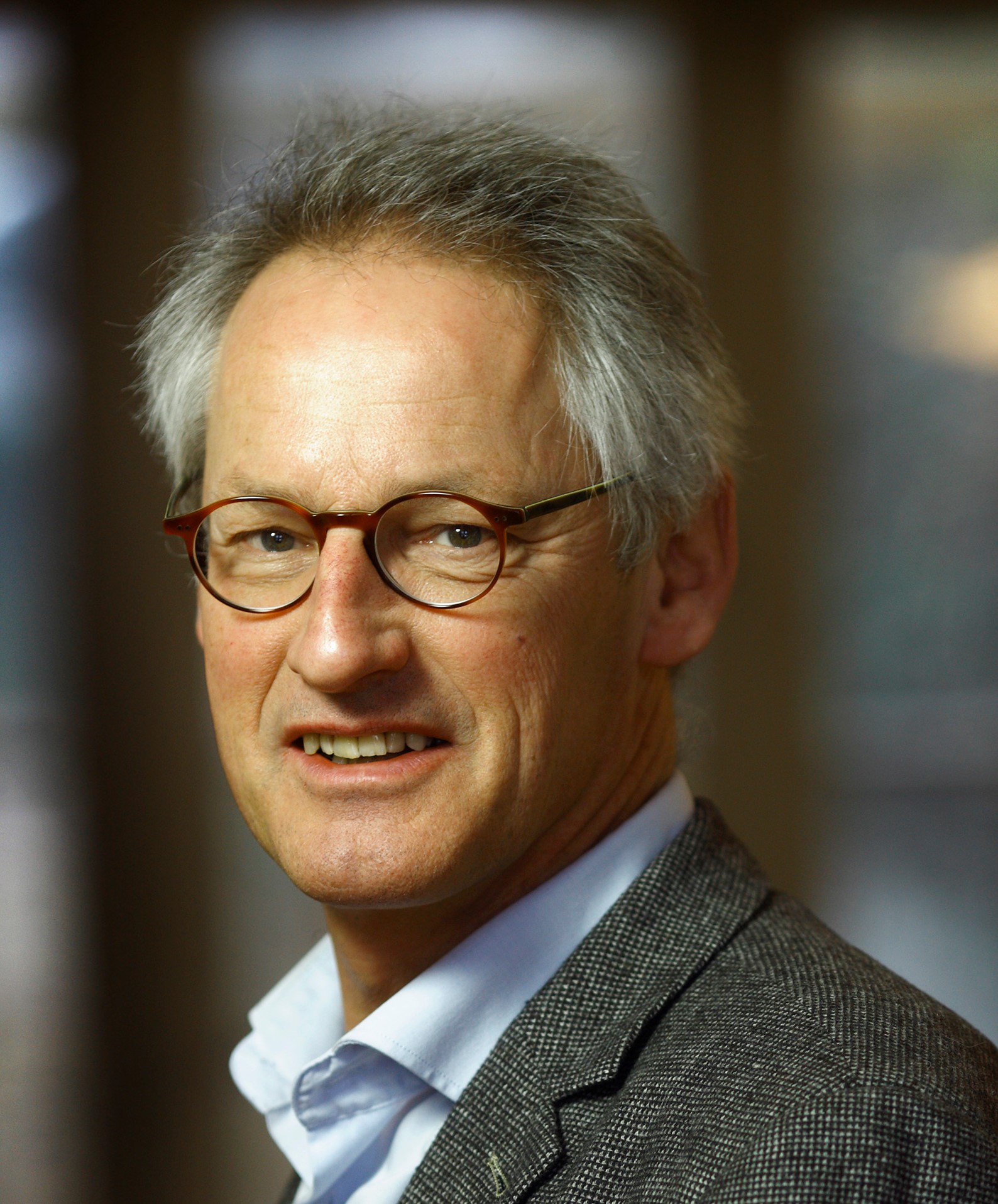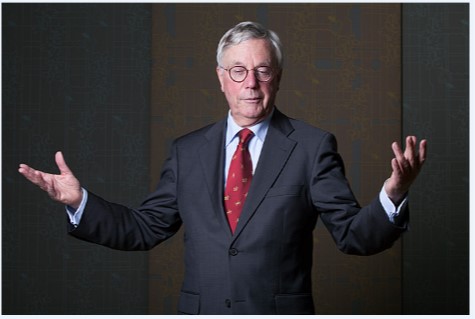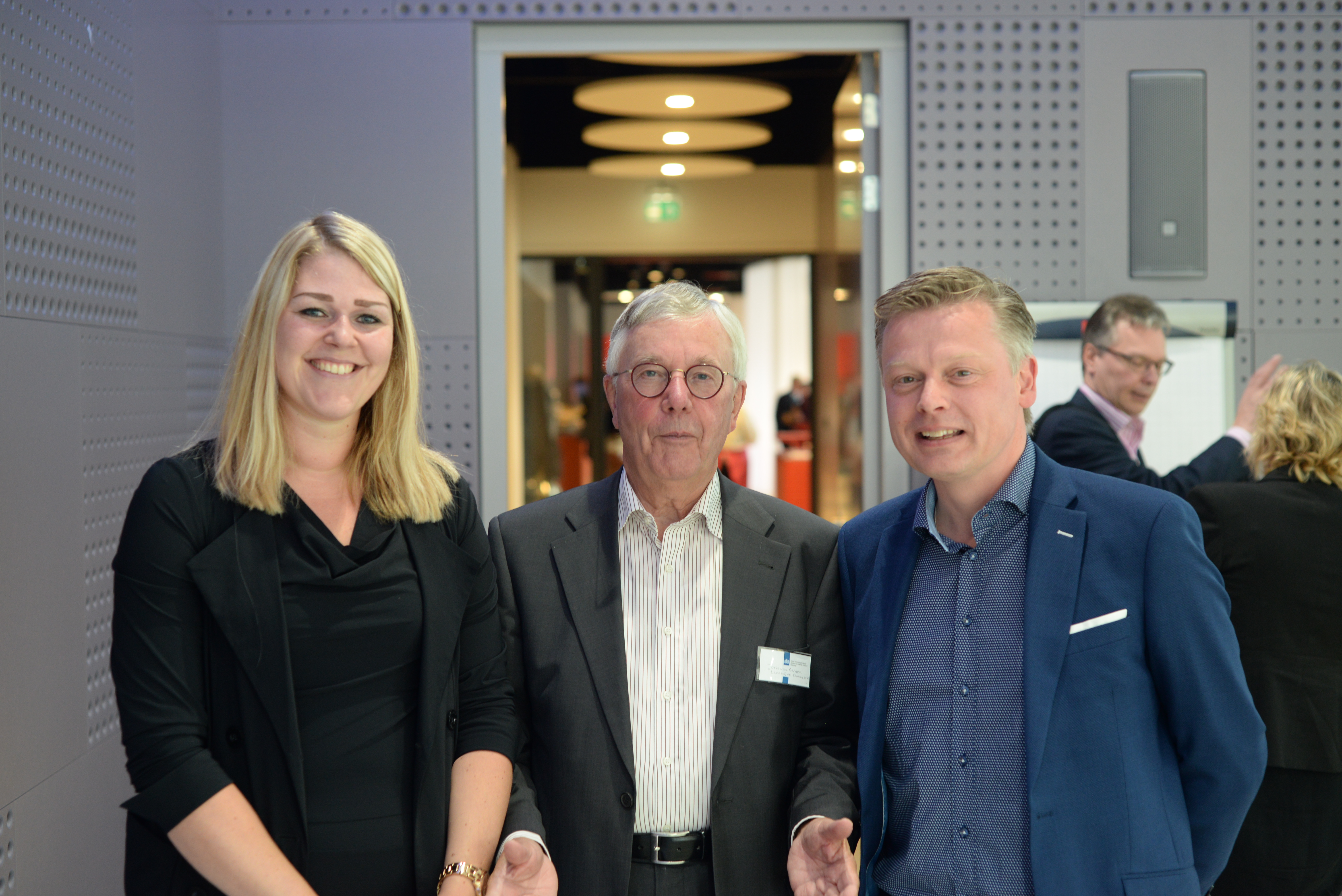By Monique Leegte
An interview with the new (Paul Rullmann) and departing chairman (Joris van Bergen) of the National Commission Code of Conduct Higher Education. At various moments and on digital screens, both gentlemen tell about their former and new roles and their future ideas.

Rullmann: ‘Just setting up everything, yes, this should work.’ After that: ‘Let’s make this an informal conversation.’ Paul Rullmann, retired sociologist, but still actively involved in higher education. He is on several committees and still holds various board positions in the area of higher education.
Paul Rullmann
‘Working in a setting where you meet students is just very pleasurable.’
What’s so special about higher education? ‘Now, that’s an interesting question to start with. Working in a setting where you meet students is just very pleasurable. Higher education has people who later will be holding important positions in society, who are often very eager to know how things work. What will I become and what will be the significance of my contribution? That keeps you alert. I think that education is a fine field anyway. It’s always exciting how you can be active in teaching enthusiastically. This applies to students and also to teachers. That is why educational development has always been my subject field. In all those positions in higher education, I have been actively involved in educational development and organisational change, which is often part of it. I’ve always been preoccupied with it.’
Joris van Bergen
‘What I liked about the Commission is that its members are such nice and committed persons.’
Van Bergen: ‘Can you see me? I can hear you, but I can’t see you anymore.’ Then all of a sudden: ‘Oh right, now it should work.’. After six years, Joris van Bergen steps down as the chairman of the Dutch National Commission Code of Conduct Higher Education. He briefly looks back on the past years.
How was the past year, the year of the pandemic, so to speak. Could you do your job for the Commission properly? ‘Yes, in terms of work, the Commission had a fairly ordinary year. But the sociability and ability to see each other and interact, which is all part of physical meetings, make things easier. What I liked about the Commission is that its members are such nice and committed persons. It was a great pleasure to have meetings with them. Of course, the same is true for online meetings, although they are more businesslike and you try to keep them as short as possible. That’s just how it works.’
In the past year, Van Bergen in particular missed visiting the institutions of higher education. ‘I used to go to an institute of higher education for the occasional work visit, which was impossible last year. Those work visits show you the place where all is happening. The focus of a commission such as this one is on regulations and agreements, which of course is fairly distant. That is why it is always a pleasure to talk with people about their work for international students and talk with the students themselves. I missed that.’

Both gentlemen sympathise with international students. Rullmann: ‘I think internationalisation is essential to the Netherlands. We are just such a small country and a tiny part of a big world, and you shouldn’t cut yourself off from it. Students come to us because living here is easy and educational options are great. There is so much possible, we have much freedom and when those students leave again, they become great ambassadors for our country. That is beneficial to both them and us. I am eager to promote that.’
After his retirement, Mr Van Bergen set up the Van Bergen Trust. It aims to promote collaboration between Dutch and international students. Van Bergen: ‘Before the pandemic started, the trust executed interesting projects for many years, but when the pandemic started, the trust almost came to a halt, which fulfils me with sadness.’
Van Bergen
‘You cannot expect others to do it all; you have to act yourself too.’
He also has a word of advice for international students: ‘Be active in showing your interest in Dutch students and Dutch society. Do not just stick to your studies, but also say: Hey, I’m a guest in the Netherlands, I want to learn about Dutch culture and history, who can help me with it. Take the initiative; it’s vital, you’ll notice that Dutch students and teachers will be happy to help you. You cannot expect others to do it all; you have to act yourself too.’
Currently, Rullmann sits on the Commission on behalf of VNSU. Soon he will be an independent chairperson.
How will you tackle being independent? ‘When I am the chairman, I will hold a different position. I will not sit there on behalf of VSNU. Aside from that, Commission members always operate independently and not bound by any instructions. You are on the Commission because you want to look after communal safeguards for international students. That is what links us.’
Was it a logical step to become the chairperson now? ‘No, actually it wasn’t. I didn’t imagine taking that step because I thought that since next year is the last year of my term, I would step down from the Commission. But the Commission discussed it and said, couldn’t he take up the chairmanship? That’s how it went.’
When Mr Van Bergen became the chairman, he had several plans in mind. One of them was to have the Code of Conduct operate with a minimum of fuss. Do you think he succeeded in that? ‘Yes, yes, but at the end things became more complicated, at least in terms of fuss. You have to make it clear to the institutions that it is important to stick to the agreements, but you must also consider options how that can be done best. You should not only correct them, but you must advise them how to improve. And I think that approach has worked quite well.’
Because COVID-19 measures necessitated a relaxation of the agreements and the political discussions about the preparatory year, the Commission’s work received more attention. Besides that, the current chairman’s work visits proved to be quite valuable. The Commission generated publicity too. Rullmann: ‘The Commission seeks the limelight in a friendly way, so to speak. In the Code of Conduct, we agreed that the institutions inform international students about the Commission and all sorts of subjects they may encounter. That is something we examine in the occasional random check. We will look at the institution’s website to see if we can find the items we agreed upon. It’s really quite straightforward.’
Rullmann
‘I will do my utmost to make the best of it.’
Finally, what are the gentlemen’s views of the future? Van Bergen: ‘What I would like to do more because I haven’t had too much time is drawing and painting. I joined a painting club. I spend a half-day once a week on it, but that is really not enough. You need peace and quiet and you must be able to concentrate. I don’t have sufficient room in my head for that yet. I hope that it will work. ‘
Rullmann: ‘I will be chairman of the Commission and perform that position with full energy. I think it’s very important. What the Commission stands for, which is looking after international interests, is something I wholeheartedly embrace. I will do my utmost to make the best of it.’
Mr Van Bergen would like to send Mr Rullmann a word of advice for when he is the chairman. ‘Maintain good contact with the staff. I could never have done the work for the Commission without their excellent support, anticipation, drawing attention to what is coming to us, support in making memorandums and in the discussions held. Our collaboration has been truly brilliant. Well yes, Paul knows that too and it is important to continue that.’

During his last meeting, Mr Van Bergen will address the entire Commission, including all substitute members. He would like to disclose one detail now: ‘I think that we should invest a bit more in the information to the boards of all participating organisations. Every time when a new member, who is focused on students and teaching, steps onto the board of an institution of higher education, we could send them a letter, a leaflet or a little present to draw their attention to the existence of the Commission and tell them that they can call on the Commission and collaborate with it. I’ve noticed that many board members only found out when there was a problem. That is a pity. A new board member has so much to learn and to find out what needs to be done, and as a Commission, you need to play an active part in that; otherwise they will not notice you.’


